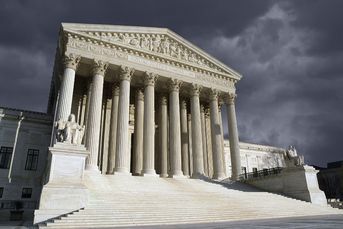Retirees spend twice as much when they have guaranteed income, research finds
 David Blanchett, head of retirement research for PGIM DC Solutions and Michael Finke, professor of wealth management at the American College of Financial Services.
David Blanchett, head of retirement research for PGIM DC Solutions and Michael Finke, professor of wealth management at the American College of Financial Services.
Most people don't plan bequests and many unnecessarily cut back on discretionary spending in retirement, according to a paper from an industry group.
Guaranteed income sources like Social Security, pension assets, and annuities give people a “license” to spend more in retirement, new research found.
The amount of extra discretionary spending is significant, as those with assets in those categories spend about twice as much as those whose savings are in investments, according to the paper, “Guaranteed Income: A License to Spend,” published by an annuity industry group.
The reason is that people think about guaranteed income sources differently than savings. A survey that was part of the research found that nearly 60 percent of respondents said they would feel more comfortable spending on nonessentials if the money came from an extra $10,000 of income rather than a lump sum of $140,000, which is the equivalent cost of an income annuity.
“This is probably the most important reason to consider allocating more savings to lifetime income,” said David Blanchett, an author of the report and head of retirement research for PGIM DC Solutions. “Having more of your wealth that is protected or guaranteed for life will lead to an environment where someone is more likely to enjoy their savings, versus one big pot of money.”
A factor that makes spending from savings difficult is fear of the unknown – and something almost no one knows is how long they’re going to live, the authors noted.
“It’s really hard to know how much you can spend from a portfolio. We don’t know what the markets are going to do in the future and how long you’re going to live,” Blanchett said. “It’s difficult behaviorally to spend money from savings.”
The consequences of that can be important for the satisfaction many people have in retirement, as only about a quarter have explicit intentions to leave bequests, the paper noted.
Separate research from the Employee Benefit Research Institute in 2020 found that 21 percent of workers and 18 percent of retirees said they plan to spend financial assets in retirement, while about a third of each said they would maintain assets and spend earnings, Blanchett and Finke noted. About a quarter of people said they planned to grow their assets in retirement.
The paper analyzed data from the Health and Retirement Study and survey data collected last year from more than 2,000 adults.
For financial advisors, a takeaway from the new research is that retirement spending can often be increased, and the two most common ways to do that are using savings to delay Social Security claiming to age 70 or to buy private annuities with guaranteed income components, said the paper’s other author, Michael Finke, professor of wealth management at the American College of Financial Services.
“If your client’s goal is spending, then creating opportunities that give them the comfort to spend more is ultimately your goal,” Finke said. “Your goal is not asset preservation, if the client wants to live better. Your goal is to create a plan that helps them live the lifestyle they want to live.”
And while retirement spending is often tapered, “there really isn’t much thought given to adjusting upward and thinking about ways that advisors can create a retirement income plan that allows a client to spend more,” he said.
Financial advisors who address retirement income through efficient portfolios but don’t consider guaranteed income options for clients should think about having all essential living expenses covered by an annuity or other income source, Blanchett said.
“There are many advisors who do not consider any type of annuity as part of an individual’s retirement income plan – and I think that is problematic,” he said, given the effect that can have on spending.
“You save for retirement to enjoy retirement.”
Learn more about reprints and licensing for this article.








